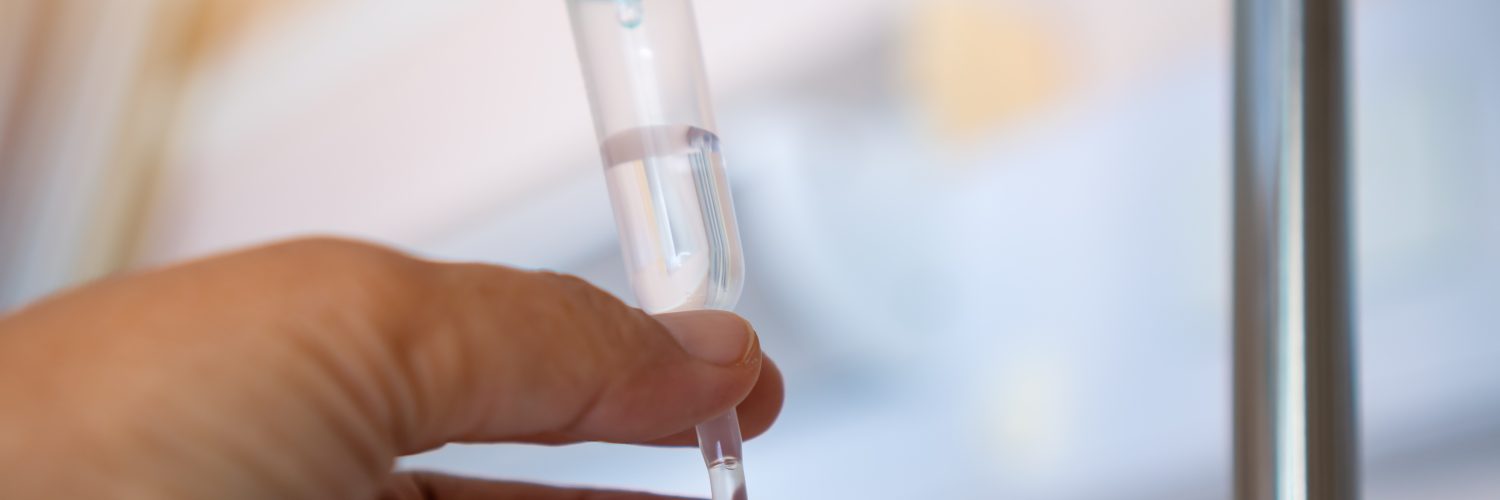Ekev 5780
And you will eat and you will be satisfied and you will bless Hashem your G-d. (Devarim 8:10)
Patients who are unable to meet their nutritional requirements through normal eating often require formula feeding via nasoenteric tube (a tube through the nasal cavity into the stomach or small bowel) or gastrostomy, duodenostomy, or jejunostomy tube (a tube directly into the gastrointestinal tract through the abdominal wall). Does ingesting food in this manner require a Bracha Rishona or Acharona?[1]
Birchos haNehenin, as their name suggests, are recited on the benefit and enjoyment (Hana’ah) man has from food or drink. If he has no Hana’ah, he recites no Bracha. If he eats something that is damaging to his health but which he nonetheless enjoys, he recites a Bracha (see Brachos 35b-36a and Shulchan Aruch, O.C. 202:4-8).
The question is, to which Hana’ah do we refer – the enjoyment felt when the food passes through the palate or throat (“Hana’as haCheich” or “Hana’as Grono”), or the satisfaction of the stomach (“Hana’as Meiav”)? With regard to Issurei Hana’ah (items from which the Torah forbade any benefit), this question is subject to a dispute between R’ Yochanan and Resh Lakish (Chulin 103b) and the Halacha is that even Hana’as Grono is forbidden (see Rambam, Hilchos Ma’achalos Asuros 14:3). Therefore, if a person eats half a Kezayis of a prohibited item and then vomits it, then eats the same half-Kezayis that he vomited, he is liable as he experienced Hana’as Grono of a full Kezayis even though his stomach did not experience the satiation of a Kezayis and it cannot be considered Hana’as Meiav.
Regarding Birchos haNehenin, this question is matter of dispute among the Poskim. According to the Panim Meiros (27), since the Chachamim based the parameters of Birchos haNehenin on the Pasuk of “v’Achalta v’Savata” – “and you shall eat and be satisfied” there must be Hana’as Meiav for there to be an obligation to recite a Bracha.
The Beis Yosef (O.C. 210) cites the Sefer Ohel Moed (Sha’ar haBrachos 1:4) who differs. He rules that if a woman tastes food she is cooking and then spits it out, she needn’t recite a Bracha. But if she tastes as much as a Revi’is then she must recite a Bracha even if she doesn’t swallow any of it, because when she tastes this volume of food, she would certainly have experienced Hana’as haCheich. The Beis Yosef, who holds like the Panim Meiros, disagrees.
The Chelkas Yaakov (3:68) rules like the Sefer Ohel Moed. He cites proof from Tosfos in Brachos (36a) who contend that if a person drinks liquids that are good for him and which quench his thirst, or if he eats certain foods for medical reasons, if he doesn’t enjoy them (in other words doesn’t have Hana’as haCheich or Hana’as Grono) he needn’t make a Bracha. The Minchas Chinuch (313) and Maharam Shik (O.C. 13) hold that both Hana’as Grono and Hana’as Meiav are required in order to recite a Bracha.[2]
A practical Halacha that depends on whether the obligation depends on Hana’as Grono or Hana’as Meiav is whether a person must recite a Bracha if he swallows food that is encapsulated in a wrapper that will dissolve in his stomach or intestines (i.e. he will not taste the food). He certainly has no Hana’as Grono, but since the food does nourish him there is Hana’as Meiav. The Poskim maintain that since the matter is subject to dispute, he should not recite a Bracha (“Safek Brachos l’Hakel”). He should, however, make a Bracha[3] on another item in order to cover this food too.[4]
Returning to our original question, at first glance, tube feeding would seem to be a classic example of Hana’as Meiav without Hana’as Grono. However, there is a significant difference in that it does not comprise a normal act of eating as the food bypasses the mouth entirely. Perhaps, given that this form of satiation is completely divorced from eating in a regular sense, it wouldn’t require a Bracha at all.[5] This is the contention of the Chelkas Yaakov (3:68), who argues that it is no different than intravenous fluids for which one certainly does not recite a Bracha. (In truth, one could argue that there is more reason to make a Bracha in a case where food is introduced to the stomach and does produce a feeling of satisfaction, than in a case of intravenous fluids which do not.) This was also the conclusion of Rav Elyashiv zt”l (cited in Vezos haBracha p113). The Chelkas Yaakov adds that even if one would not make a Bracha, if one wishes to thank Hashem one should recite a Tefila or some Tehilim.
The Minchas Yitzchak (3:18) cites the Levushei Mordechai who disagreed. He ruled that a Y’rei Shamayim who is being fed by tube should try to find somebody who is eating at that time to be Motzi him with his own Birchas haNehenin. Though we are no longer accustomed to being Motzi others with Bracha Rishona, in this case, which is clearly Sha’as haDechak, it is permitted.
[1]Assuming that there is an obligation to recite Birchos haNehenin, there is a fascinating question of when a patient should make a Bracha if he is fed continuously throughout the day (due to an inability to tolerate bolus feedings). A similar question is asked regarding the Bracha of Asher for patients who are connected to a catheter through which their urine passes constantly.
[2] Regarding Birchas haMazon, everyone would likely agree that Hana’as Meiav is the deciding factor as the Mitzva is clearly derived from the words “v’Achalta v’Savata uVeirachta” (Eglei Tal, Tochen 62). See also the Aruch haShulchan (Y.D. 85:9-13) regarding Birchas haMazon.
[3]He should choose an item that requires the Bracha of Shehakol even if the food inside its wrapping usually requires a different Bracha because it is being eaten in an unusual manner which relegates its Bracha to Shehakol
[4]The same applies if a person drinks an alcoholic beverage solely to become intoxicated and not because he likes its taste (see Ben Ish Chai, Parshas Naso 6).
[5]In fact, according to the Achiezer (3:61), eating in this fashion is not a violation of Yom Kippur.









Add comment